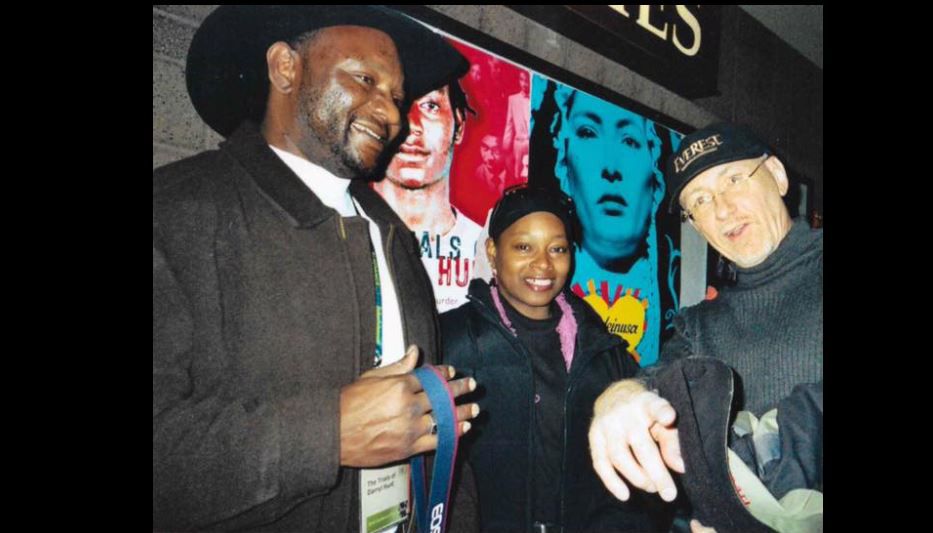Sad news, about the death of Darryl Hunt.
I covered his story since the 1984 murder of Deborah Sykes, an editor at the Winston-Salem Journal. I reported on the trials and appeals for years, and as the case started getting national attention, I was frequently asked if I thought he was guilty. His attorney, Mark Rabil, was my former neighbor (we lived in the separate halves of a upstairs/downstairs duplex). In reply, trying to maintain my journalistic objectivity, I always said, "His attorney is one of the most stand up guys I've ever known and has never doubted his innocence."
Mark (and many others) were finally proven right when DNA testing exonerated Darryl after 19 years in prison, and identified a suspect who confessed when he was taken into custody by police. The DNA hit originally led to that man's brother, who couldn't have committed the crime, since he was jailed on another charge at the time. I covered the hearing when Darryl was totally exonerated of the charges -- and when Judge Andy Cromer said that -- Darryl looked heavenward, and it was like chains fell off of him.
Instead of being bitter about what happened to him, Darryl took the money from the settlement over his wrongful imprisonment and started a foundation to help others who were wrongfully accused and other former prisoners negotiate re-entry to society. Darryl had converted to Islam while in prison. He had gone from a young man living on the streets, thought to be a petty criminal, then a convicted murderer in prison, to a devout man determined to prove his innocence. He emerged with a family and mission to help others.
The photo associated with this post is of Darryl and his wife April, at the 2006 Sundance Festival. A talented pair of filmmakers from New York had heard about Darryl's story and started making a documentary about it. It stalled when Darryl ran out of appeals, and resumed when there was new hope. They had shot film with separate audio tape during the process, and in the ensuing years they had stored the undeveloped film in a freezer, and lost some of the audio. I got involved in stitching some of the narrative together with my old scripts or rewritten voice over tracks when they decided to pick up the project. It was entered in the documentary category and I was invited to go to the festival in Utah and brought along my son, Sean. He snapped the photo while I was saying, "this is my son Sean." Sean is now in paralegal school, and has a strong sense of fairness. I can't help but feel Darryl's story may have been one factor.
Over the years, I did several stories with Darryl about his years in prison, release and his foundation. I'd occasionally see him around town and we'd talk about what we'd been up to. Darryl was a humble man, low-key and thoughtful in the things he said. I never heard him express any anger or bitterness about what happened to him.
Rest in peace, Mr. Hunt.
